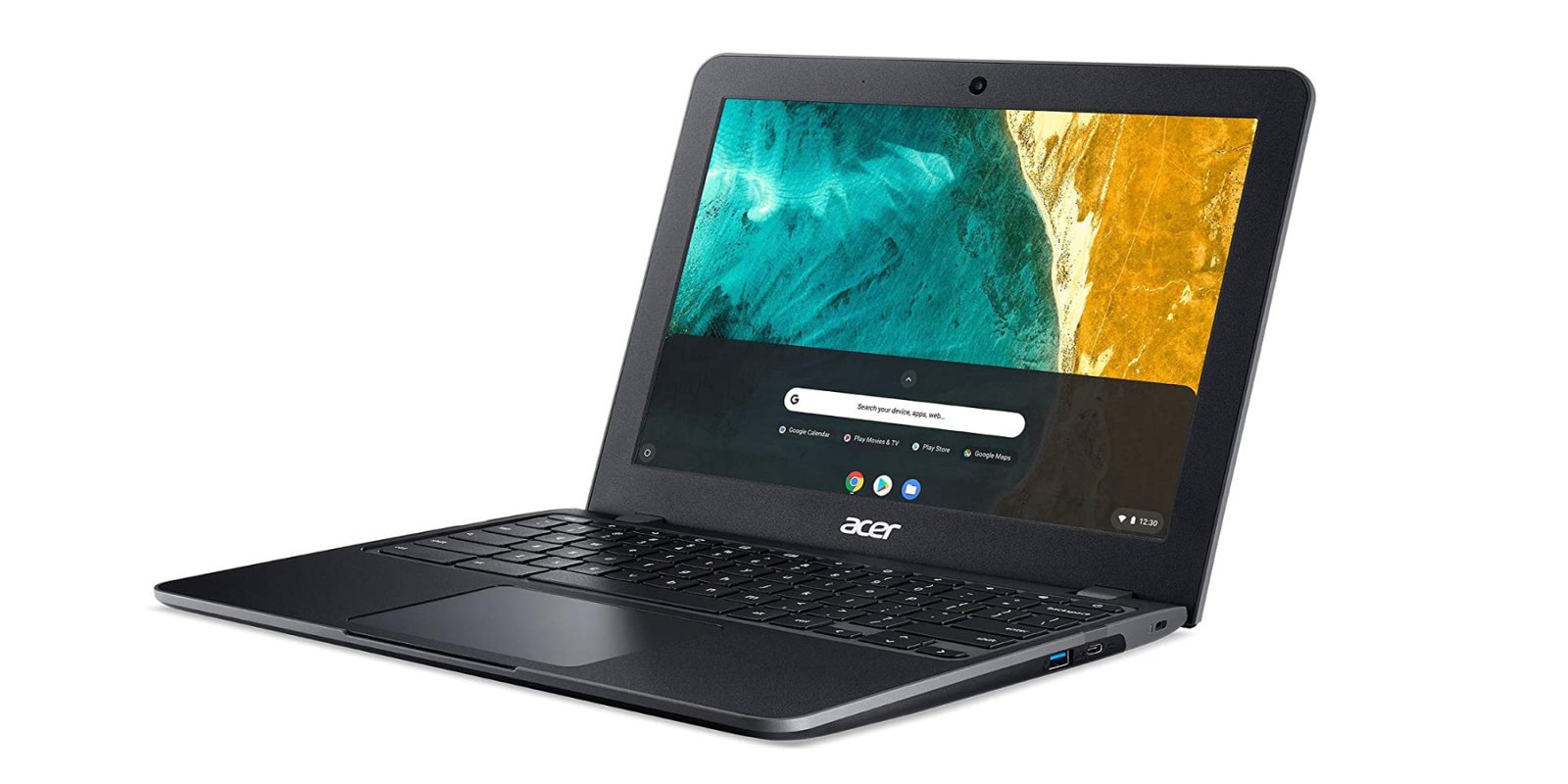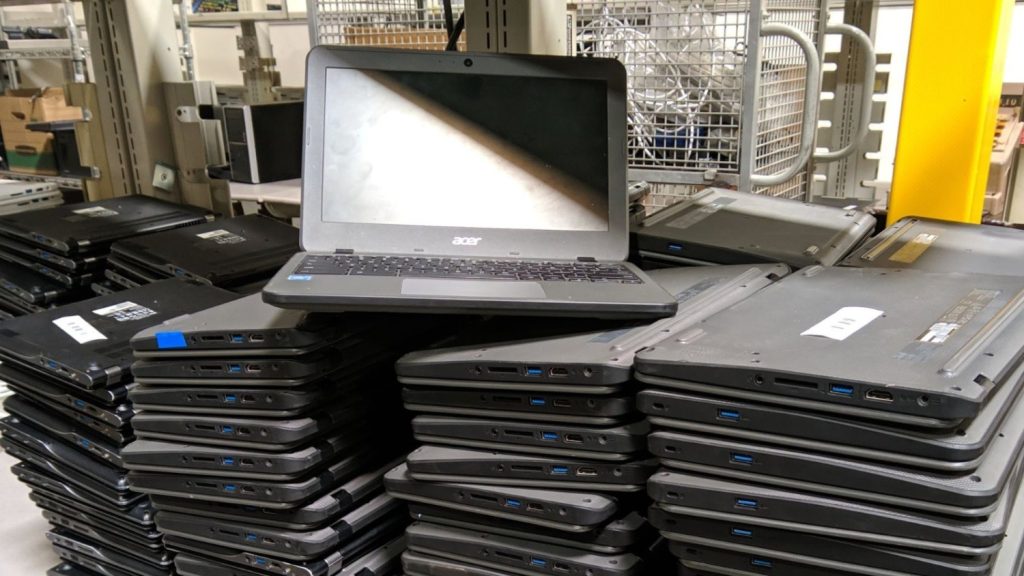
A new report titled “Chromebook Churn” from the US Public Interest Research Group Education Fund has found that the millions of Chromebooks that flooded schools in recent years are breaking quickly with difficult repairs that lead to e-waste and higher costs.
As COVID-19 hit and turned many schools to remote learning, Chromebooks were heralded as an affordable, easy-to-use option that many schools invested in. In 2020, the ChromeOS market saw massive growth, even outpacing that of macOS.
But, according to the US PIRG’s report, these machines are starting to break quickly, with repair options that make it difficult to keep Chromebooks going.
Researchers working on the study found that replacement parts for Chromebooks used in schools are both expensive and hard to obtain. In 10 of 29 cases, replacement keyboards would cost around $90, roughly half the cost of most Chromebooks being used in schools today. And that’s if the parts were even in stock. Beyond that, the other issue the report calls out is with the random changes some Chromebook manufacturers make to their newer models, with often non-functional changes meaning that a replacement part for one machine won’t work with a newer model.
The other part of “Chromebook churn” that the report calls out is the end of updates for ChromeOS devices, which has Google has received flak for on more than one occasion. Google issues updates to all Chromebook models, with all Chromebooks released since 2020 being eligible for eight years of updates. But, after that point, updates end and Chromebooks are quickly left out of many of the features that make them so attractive for schools in the first place, often leading to these machines being dumped for a new generation. One local news report cited found that Chromebooks that were out of updates couldn’t access state testing websites, with an accompanying bill of nearly $3 million.
Apparently, roughly half of Chromebooks being used in schools have only four years left on software support, the report found.
This has led to piles of broken or unsupported machines at many schools.

This report then calls on Google to take action and “double” the lifespan of Chromebooks. This starts with requesting that Google expand the update lifespan of Chromebooks to 10 years, up from eight and double that of the previous five-year guarantee.
Also requested is that Google establish standards with Chromebook makers to not only produce spare parts more reliably, but also to “standardize” parts to “the greatest extent possible.”
According to the report, doubling the life of Chromebooks used in schools could save schools, and by effect taxpayers, around $1.8 billion assuming no additional maintenance costs. It would also be the carbon pollution equivalent of taking 900,000 cars off of the road for a full year.
Really, it doesn’t seem like a big ask for Google to provide a couple more years of updates and help manufacturers establish better practices for repairability, especially given how much of ChromeOS’s success rests on the education market. But it doesn’t seem like Google is committing to anything just yet. The company offered a statement to The Verge that simply brought out the last boost to updates as well as efforts from its partners to build machines with recycled materials.
We’ve worked diligently with our hardware partners to increase the years of guaranteed support Chromebooks receive, and since 2020, we now provide eight years of automatic updates, up from five years in 2016. We also are always working with our device manufacturing partners to increasingly build devices across segments with post-consumer recycled and certified materials that are more repairable, and over time use manufacturing processes that reduce emissions.
Regular Chromebook software updates add new features and improve device security every four weeks, allowing us to continuously iterate on the software experience while ensuring that older devices continue to function in a secure and reliable manner until their hardware limitations make it extremely difficult to provide updates.
More on Chromebooks:
- Latest Acer Chromebook Spin 714 is first ChromeOS device w/ 13th Gen Intel Core chip
- ChromeOS and desktop Chrome are getting a Reading Mode
- Memory Saver boosts Google Chrome’s performance: How to use the new desktop feature
FTC: We use income earning auto affiliate links. More.



Comments